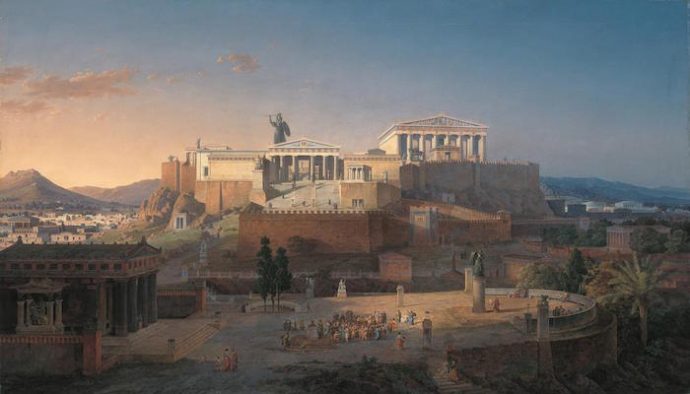What does it mean to say God is sovereign?
The strict dictionary definition of “sovereign” is having supreme rank, power, or authority. Sovereignty, then, is that absolute authority to carry out the decrees which one sees fit to make. And Scripture certainly testifies to the affirmative when it comes to the sovereignty of God. According to His Word, God is sovereign over things like:
- The human heart: A king’s heart is like streams of water in the Lord’s hand: He directs it wherever He chooses (Prov. 21:1).
- Our daily lives: Come now, you who say, “Today or tomorrow we will travel to such and such a city and spend a year there and do business and make a profit.” You don’t even know what tomorrow will bring—what your life will be! For you are like smoke that appears for a little while, then vanishes. Instead, you should say, “If the Lord wills, we will live and do this or that” (James 4:13-15).
- Life and death: See now that I alone am He; there is no God but Me. I bring death and I give life; I wound and I heal. No one can rescue anyone from My hand (Deut. 32:39).
- Nature: Aren’t two sparrows sold for a penny? Yet not one of them falls to the ground without your Father’s consent (Matt. 10:29).
- The death of Jesus: Though He was delivered up according to God’s determined plan and foreknowledge, you used lawless people to nail Him to a cross and kill Him (Acts 2:29).
- And everything else: Our God is in heaven and does whatever He pleases (Ps. 115:3).
The sovereignty of God can be both a tremendous comfort and a source of spiritual angst for us at different moments in life. It is comforting to know that there has never been an occasion which caught God by surprise – that even though we might find ourselves reeling at this circumstance of that, the Lord is firmly in control. Of course, that control works both ways, and it means that whatever does indeed come into our lives is only there because God, in His sovereign wisdom and power, has seen fit for it to be there.
But there is another implication of God’s sovereignty that we might tend to overlook. It’s this aspect that Paul pointed his Athenian audience to in Acts 17:
Then Paul stood in the middle of the Areopagus and said: “Men of Athens! I see that you are extremely religious in every respect. For as I was passing through and observing the objects of your worship, I even found an altar on which was inscribed:
TO AN UNKNOWN GOD.
Therefore, what you worship in ignorance, this I proclaim to you. The God who made the world and everything in it—He is Lord of heaven and earth and does not live in shrines made by hands. Neither is He served by human hands, as though He needed anything, since He Himself gives everyone life and breath and all things. From one man He has made every nationality to live over the whole earth and has determined their appointed times and the boundaries of where they live. He did this so they might seek God, and perhaps they might reach out and find Him, though He is not far from each one of us…” (Acts 17:22-27).
Here we see Paul describing the sovereignty of God to the very religious people of Athens. They had more idols than you could shake a stick at, and yet Paul described to them the one true God they were missing. This God, Paul preached, is unlike all these other deities, for He dies not live in shrines. He is not formed by silver or gold or wood like these other so-called gods. He is the true Sovereign, the King who directs all things. In fact, He is the source of the very breath these philosophers used to pontificate and the artistry the craftsmen used to fashion their statues.
It is in God’s kindness that He continued to supply life, breath and everything else, even to those who do not acknowledge from where their life, breath and everything else comes from. Indeed, God in His sovereignty had decided that these men would live in Athens, and that they should be at the Areopagus at this very moment. And why? What is the implication of God’s sovereignty? It is that “they might seek God, and perhaps reach out and find Him, though He is not far from each one of us…”
One of the implications of God’s sovereignty is God’s desire for humans to seek Him. It was true for the Athenians, and it’s true for us today. Where do you live? What is the order of your steps? How is your health? What is your job status? The Lord of heaven and earth ultimately rules over the answers to these questions, for He is sovereign. And He is exercising His authority in big and small ways, when it comes to you and I, so that we might reach out and find Him.
When our circumstances change, especially when they change for the perceived worse, all kinds of questions are on the tips of our tongues: Why? we wonder. How? we ask. But in light of these verses, we might also do well to look at the circumstances of our lives and recognize that here, again, is God moving us to reach out for Him. And when we do, we will gloriously recognize that He is not far off.
Subscribe to MichaelKelley.co
Never miss a new post. Subscribe to receive these posts in your inbox and to receive information about new discipleship resources.





1 Comment